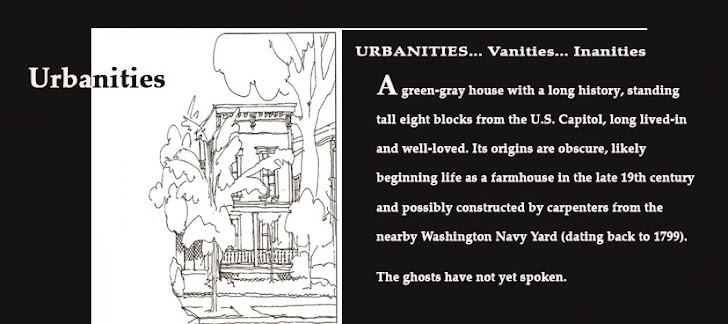This happened around holiday time when wallets and perhaps personalities are loosened, when even conscientious retail workers might leave their jobs a little early. I'd gone in search of a vegetable - Belgian endive, in fact - using the need as an excuse for a walk in the fading afternoon.The Harris Teeter outlet in Yards Park, SE DC, fit the bill - over and back with a few diversions comes to about three miles. Enough to compensate for a leisurely morning spent reading in bed.
Post-Solstice can do that to a person: dark enough in the morning to allow for dawdling when others are up and about, off to jobs or shopping.
The endive was one of a number of oddly mixed ingredients needed for a Christmas Day salad, earning me dinner at a friends' house across the river ('and through [very sparse] woods') in Virginia.
The fresh vegetables shelves were unattended - and many of the offerings looked tired. Still, if a store stocks a full regiment of greens, common and not, might not the endive lurk there somewhere? The greeter desk (or whatever was the spot just inside the door) was empty, too, so I went hustling after an official Customer Service person when I was waylaid by a uniformed Security Guard. He was a genial looking operative, smiling, and obviously on my tail.
'Do you mind if I ask you a question?" he said. I was still walking, intent on my vegetable quest. In normal times I might have stopped to ask what sort of question - when he continued:
'How old are you?'
Not the sort of query you get every day unless the airport TSA official wonders why you didn't take off your shoes.
Needless to say, I was caught off guard. Not breaking my stride, I asked him in turn 'How old do you think I am?" Thereby giving up a golden opportunity to start a conversation out of the blue with a stranger on Facts of Life, Mortality or some other momentous subject.
He might have been intending a compliment, but he felt compelled to relate to me how his mother, or maybe it was his grandmother, was 100 and 'still full of beans'
'Ah, well, it's luck of the draw. Energy. Metabolism,' I muttered stupidly, still moving.
What the real puzzle was, I thought later, not why I was being singled out but that the same question never is asked of a man.








